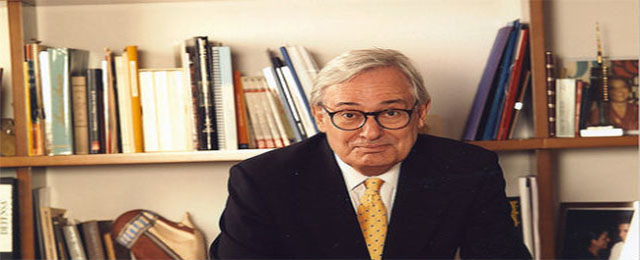Question: Why do US telecoms perform better than their European competitors?
Answer: I think this happens because the European firms wanted to replicate the US model of limited competition, which no longer exists there. AT&T was divided into seven companies a long time ago and now there are only two or three left. We have about 150 operators in Europe. It is impossible to get profits with that many small companies.
Q: What do you think about the banking sector’s change of direction?
A: I missed the traditional banking business at the counter… it was a very reliable system that began drifting when things got more complex. The banking industry is a sector that has to be closely monitored. I agree with the British socialist Eli Miliband, who recently said that markets are vital, except in the financial and energy sectors. They must be under the state’s surveillance. This means to go towards other socialism far from the idea of banks going free. The point is that they can get one into severe troubles, almost impossible to resolve, as events have showed. Spain spent €400 bn on the financial crisis, and Europe spent trillions of euros that came from taxpayers. The same happens with energy, it cannot be free in the markets.
Q: But the banking industry was also closely supervised, wasn’t it?
A: Certainly, but it managed to get away for some reason, in the EU as well as in the US, mixing those packages with healthy and toxic assets with nobody knowing what was inside.
Q: In the end Europeans seem to be very angry at the entities’ behaviour?
A: It is a logical response because we all have had to make big efforts without devaluating. These things also happened before but they were not so harmful.
Q: That being said, is it worth to maintain the euro or, contrarily, is it a restraint?
A: The best EU performers are the UK and Poland. The remaining countries, especially the Southern ones have been forced to make great budget adjustments. But Germany also did it in times of Gerhard Schröder’s who is an exceptional political leader. He was the only one who saw public spendings could not go on increasing. However, the German dismissed Schröder.
Q: In 2003-04 Spain grew at 3-4%. Do you remember that saying of “Spain is doing well” [N. from the E.: one of former Spanish PM José María Aznar most remembered sentences]?
A: I do. The question is that 2 of these percentage points came from the housing market. Anyway, Germany was in a very difficult situation, absorbing the East. Sometimes countries come to complex circumstances needing urgent decisions.
Q: To find the adequate measure is not easy. For instance, what should socialists do right now?
A: The European socialism should be concerned about the future of all comprising social stuff and the future of socialism itself. Very wide social movements to express people’s anger and frustration have spread across Europe, a sort of resounding ‘no’ to what is happening. I do not think that socialism can gain anything by joining to this ‘no’. These groups can shout ‘no’ because they will never reach the government. Furthermore, that attitude does not contribute absolutely anything to people. What socialism has to do is to say ‘yes’ to some ideas, giving solutions. They should tune up their propossals. For instance, it is in vain to say no to any measure over the health system that smells like some privatization. Some private-public partnerships are interesting and may even improve services, also in the education system. Many socialists are adopting them.
Q: It would be quite difficult, wouldn’t it? Spain is not the Germany of grand coalitions…
A: Yes. In fact, this is the only European country having a clear division between right and left because of civil war. This is crucial. A German-style coalition government is impossible in Spain. The Spanish have made being rightist or leftist a matter of life and death. This did not happened in Germany or France. I myself was in prison during a couple of years and became Telefonica’s chairman. That Deutsche Telekom’s head had been in prison would not be understood in Germany. This a unique Spanish problem that still remains unresolved.
Q: Europe’s economic importance in the global context decreases, Europeans have become poorer, middle class is shrinking. Do you think socialists have any solution for this?
A: The region has no other choice but reducing the influence of states. This does not mean to reduce social state, but that the state manages too many affaires. Private sector can perfectly contribute to this. Furthermore, it can be more strongly required and more closely supervised than public officials. The state got out of control and those should be cut.
*This is the first release of The Corner’s conversation with Mr Solana. The next part is focused on the telecom sector and the challenges ahead. Stay tuned!






Be the first to comment on "Luis Solana: “Finance and energy sectors need to be closely monitored” (I)"